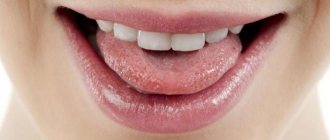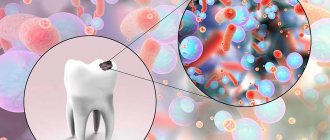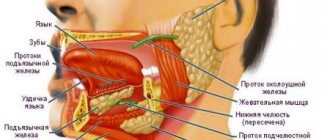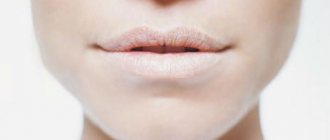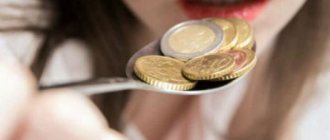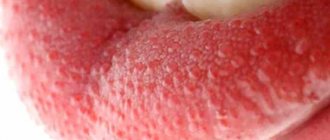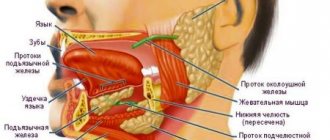Consistency is one of the characteristics of salivary fluid in the mouth, which few people think about for no reason. Most often, a person learns that it can change when the metabolism in his body is disrupted. However, saliva in the mouth can become viscous and sticky for a variety of reasons, and the treatment of the defect directly depends on what exactly was the prerequisite for its development.
Saliva is normal
The salivary glands of a healthy adult produce from one to two liters of secretion every day. The purpose of this liquid is to lubricate the oral cavity to facilitate chewing and speaking. Thanks to the secretion, the digestion of food begins at the moment of chewing it, since saliva contains active enzymes. The perception of the taste of foods also depends on the degree of their processing by salivary fluid.
Saliva is the first most accessible natural antiseptic. This is why small wounds in the mouth heal much faster than on the skin.
In order for all these processes to proceed exactly as needed, salivation must be sufficient, and the discharge itself must be transparent or slightly cloudy, liquid and imperceptible to humans. A violation of the usual consistency of saliva cannot be ignored, as an obsessive feeling of discomfort is created, speech and the usual rhythm of life are disrupted, and problems with digestion, teeth and oral mucous membranes are possible.
Paradontosis
With periodontal disease, sticky saliva may appear. Damage to the tissues near the teeth is accompanied by pain, fever and other symptoms, and this also affects the consistency of the salivary fluid, it becomes viscous and sticky. In patients with this pathology, chewing function is impaired and the gums begin to bleed.
If periodontosis is not treated, the process penetrates into deep tissues, which can cause inflammation. The resulting plaque and tartar cause loosening and tooth loss.
The disease is accompanied by mobility of teeth, itching and discomfort in the gums
What should you be wary of?
Typically, patients' complaints are related to the fact that in the morning their saliva is not as usual: thick, sticky or foamy. In such cases, accompanying symptoms may occur:
- violation of taste perception;
- constant dry mouth and throat;
- feeling of persistent thirst;
- tingling sensation on the tongue;
- difficulty and pain when chewing and swallowing food;
- sore throat and hoarseness;
- cracks on the lips;
- rapid formation of plaque on teeth;
- inflammatory processes in the oral cavity and gums.
All these phenomena may be a consequence of changes in the composition, quantity and viscosity of saliva. A simple test that you can take yourself in the morning on an empty stomach will help you verify the validity of such suspicions or dispel them. To do this, you need to get a pipette with marked divisions and a stopwatch.
First, you need to put a milliliter of ordinary water into a pipette and observe how long it takes for it to flow out. Then you need to do the same with the salivary fluid. It remains to compare the two indicators - normally, they should be approximately the same.
But self-examination is a subjective thing, therefore, if there is any suspicion of a serious malfunction in the body, you should contact specialists to conduct accurate laboratory tests. Doctors determine whether the consistency of saliva is normal using a viscometer. If he confirms that the patient really has too thick saliva in his mouth, the doctor will determine the cause of the defect and prescribe the necessary treatment. Diagnosis will require additional tests and consultations with specialists, so self-medication in such a situation is unacceptable.
Diagnostics
A patient with complaints of viscous sputum undergoes a comprehensive examination by a pulmonologist. Valuable information is provided by physical examination methods: palpation (chest pain), percussion (local zones of dullness, box sound), auscultation (moist rales of various sizes, weakened breathing, bronchophony). The diagnostic plan includes the following laboratory and instrumental methods:
- Radiography.
A standard X-ray of the chest cavity is performed to detect local pathology—foci of infiltration or decay of lung tissue, signs of developmental anomalies. Additionally, fluoroscopy is performed. To examine the structure of the chest organs in detail, a computed tomography scan is needed. - Spirometry.
A study of pulmonary function shows a decrease in FEV1, signs of obstructive or restrictive respiratory disorders. To differentiate between COPD and bronchial asthma, a test with salbutamol is performed, based on the results of which the degree of reversibility of obstruction is assessed. - Invasive research.
Bronchoscopy is performed to examine the inner surface of the bronchi, identify signs of inflammation, and take mucus samples. To assess the structure of the bronchial tree and diagnose chronic bronchitis and bronchiectasis, bronchography is done with a contrast agent. - Sputum analysis.
Under microscopy, mucus contains a large number of neutrophils (in infectious inflammation), Charcot-Leyden crystals and Kurshman spirals (in bronchial asthma). To clarify the etiology of the pathological process, bacteriological culture of the resulting secretion is performed. - Additional laboratory methods.
Typical deviations in the hemogram: leukocytosis with a shift to the left in bacterial infections, lymphocytosis in viral pathogens, eosinophilia in allergic lung diseases. In blood biochemistry, acute phase indicators and IgE levels are determined. Sometimes an extended immunogram is prescribed.
When auscultating the lungs, moist rales of various sizes are heard
Why is saliva viscous and stringy?
A symptom such as thick drool often causes dehydration due to insufficient fluid intake and intoxication , accompanied by vomiting and diarrhea. In addition, the cause of thick saliva may lie in the side effects of medications. Diuretics and choleretic drugs, antihistamines and antidepressants, as well as a number of painkillers, radiation and chemotherapy can cause malfunction of the salivary glands. In these cases, stopping or replacing the drug is enough to solve the problem.
Experienced smokers often experience dry mouth mucous membranes, which is accompanied by the appearance of viscous, sticky saliva. For some, such a violation accompanies them until they completely give up the bad habit.
The cause of viscous or foamy saliva may be a natural hormonal imbalance that occurs during pregnancy, menopause, or adolescence in adolescents. No drug therapy is required in these cases.
Mumps
When the root of the problem lies in internal diseases, it can be very difficult to determine the true cause. Some diseases directly complicate the work of the salivary glands : with mumps, Mikulicz's disease and sialostasis, the glands enlarge and become painful, secretion production is significantly reduced, and salivary stone disease and neoplasms can even lead to their surgical removal. In any of these cases, the saliva may take on an unusual consistency. Cystic fibrosis, scleroderma, Sjogren's syndrome, HIV, retinol deficiency, and anemia can also manifest themselves in a similar way.
The reason for the appearance of unusually thick and viscous saliva in the mouth can also be an injury that causes rupture of the ducts or gland tissue. In this case, you will need the help of a surgeon. Various internal diseases can affect the functioning of the salivary glands and the properties of their secretions:
- neurological;
- hormonal;
- gastrointestinal;
- autoimmune;
- rheumatoid;
- psychosomatic.
Dryness and stickiness in the mouth, accompanied by a decrease or complete absence of saliva and resulting from deep internal pathologies, is called xerostomia. Associated symptoms of the disease are redness of the tongue, cracks and jams on the lips, soreness in the mouth and throat. Xerostomia develops progressively, depending on the cause, the pathology can be temporary or permanent - both require timely treatment under the supervision of a doctor.
Sticky mucus can look and feel different. Thick sputum is white, foamy, thick, viscous, and can create a feeling of a “lump in the throat.”
General information
The basis of salivary fluid is 95% water, the remainder is represented by a multicomponent complex of enzymes, proteins, trace elements and acidic salt residues.
A special role in the composition is played by the organic enzymes maltase and amylase, which contribute to the breakdown of pieces of food immediately after it enters the digestive system. The enzyme lysozyme controls the normal balance of microflora, and mucin, which produces foamy saliva, envelops the food bolus for successful digestion in the future.
Saliva plays an important role in digestion.
Thanks to the last component, food moves smoothly down the esophagus into the stomach, where it is processed into small components. Thus, the thickness of saliva should be sufficient for the normal functioning of the digestion process.
White saliva
Thrush in the mouth
The cause of the appearance of thick white saliva should be sought in fungal infections of the oral cavity and nasopharynx. Most often, this pathology is observed with candidiasis, known as stomatitis or thrush. It usually develops in children, but sometimes appears in adults.
The salivary fluid is colored white by deposits in the form of a cheesy coating characteristic of this infection, which cover the mucous membranes of the mouth. To get rid of the disease, local and internal antifungal drugs are used to strengthen the immune system.
Candidal stomatitis
What disease can cause dry mouth? This condition is characterized by a white coating on the tongue and mouth. Accompanied by viscous and viscous saliva. Most often, this pathology is diagnosed in children and elderly people over 60 years of age.
The causes of candidal stomatitis are:
- decreased immunity;
- xerostomia;
- pregnancy;
- diabetes;
- changes in hormonal levels;
- bacterial inflammation in the body;
- violation of oral hygiene rules;
- taking antibiotics.
The disease can be diagnosed by symptoms such as sore throat, viscosity of saliva, unpleasant metallic taste in the mouth, white coating, burning sensation on the tongue. Most often, candidal stomatitis appears due to a decrease in the strength of the immune system.
Causes of sticky saliva in the throat
Saliva can not only foam, but also seem to get stuck in the throat. In this case, it is necessary to examine an ENT doctor for damage to the tonsils and larynx. Purulent forms of tonsillitis or tonsillitis are accompanied by the appearance of plaques on the tonsils, which create discomfort and pain, and when opened, they release purulent contents into the pharynx, increasing the saturation of sputum.
Gum disease accompanied by the discharge of pus may also be an explanation for why saliva has become thick, viscous and felt in the throat. Such diseases include periodontitis, periodontal disease, cysts, cellulitis and abscesses. Sticky pus from the affected areas of the gums mixes with saliva and makes swallowing difficult.
How to relieve the condition when saliva is viscous and stringy
A person whose saliva thickens and foams experiences a lot of unpleasant sensations. In addition to discomfort, outbreaks of diseases of the throat, tongue, and gums may become more frequent, and teeth become more vulnerable to caries. Therefore, this symptom must be eliminated using conservative and traditional methods of treatment.
Having determined why the saliva in the patient’s mouth has become thick and viscous, the doctor will prescribe treatment for the underlying disease that caused xerostomia, as well as auxiliary local methods that will help quickly return to normal life:
- artificial saliva;
- various oral moisturizers in an easy-to-use form (gel or spray);
- specialized rinses;
- special chewing gum and lollipops;
- drinking plenty of fluids.
Folk remedies for the treatment of xerostomia include sage or fenugreek tea, lubrication of the oral cavity with a mixture of peach oil and propolis, and inhalations with eucalyptus. But it is better to discuss these treatment methods with your doctor.
It would not be superfluous to purchase an air humidifier for the room and give up tobacco, alcohol, soda and coffee, which additionally dehydrate the mucous membranes. The consumption of dairy products will also have to be minimized. The daily volume of clean water consumption should be at least one and a half liters. During this period, it is better to choose a toothbrush with soft bristles so as not to injure dehydrated gum tissue.
Don't wait until unusual sensations in your mouth develop into unbearable ones. The viscosity of saliva is one of the serious indicators of the health of the body. If it deviates from the norm, action must be taken.
Treatment
Help before diagnosis
Moderate drooling does not pose a threat to health and does not require emergency treatment. With nocturnal sialorrhea, patients are advised to sleep on their side so that saliva does not enter the respiratory tract. To prevent maceration of the skin around the mouth, you need to maintain hygiene and use nourishing and moisturizing creams. Since there is a risk of dehydration with excessive drooling, you should increase the amount of fluid you drink per day.
To reduce saliva production, doctors advise avoiding sweets, carbonated drinks and foods rich in extractive substances. Hygienic oral care is best done with slightly foaming toothpastes. For swallowing disorders and perioral muscle dysfunction, motor exercises are prescribed to help control drooling. Special massage and physiotherapy are used less frequently.
Conservative therapy
In most situations, drooling can be completely eliminated after treatment of the underlying pathology. The therapeutic regimen is selected by a doctor of the appropriate profile: gastroenterologist, otolaryngologist, neurologist. If drooling is caused by acute poisoning, an intensive detoxification program is carried out in a hospital setting. With massive sialorrhea, pathogenetic therapy is required, which includes:
- M-anticholinergics
. Medicines inhibit the secretion of the salivary glands, quickly eliminating salivation. In addition to standard tablet products, there are skin patches. Solutions with anticholinergics are also used to rinse the mouth. - Tricyclic antidepressants
. An additional effect of medications is a decrease in the functional activity of glandular tissue. They are primarily prescribed for psychogenic salivation. - Botulinum toxin
. Botulinum toxin temporarily blocks the nerve impulses that stimulate salivation. It is used in the form of local injections in the absence of effect from standard conservative treatment.
